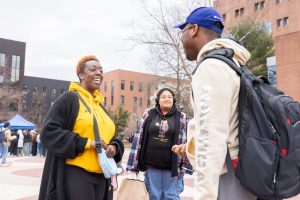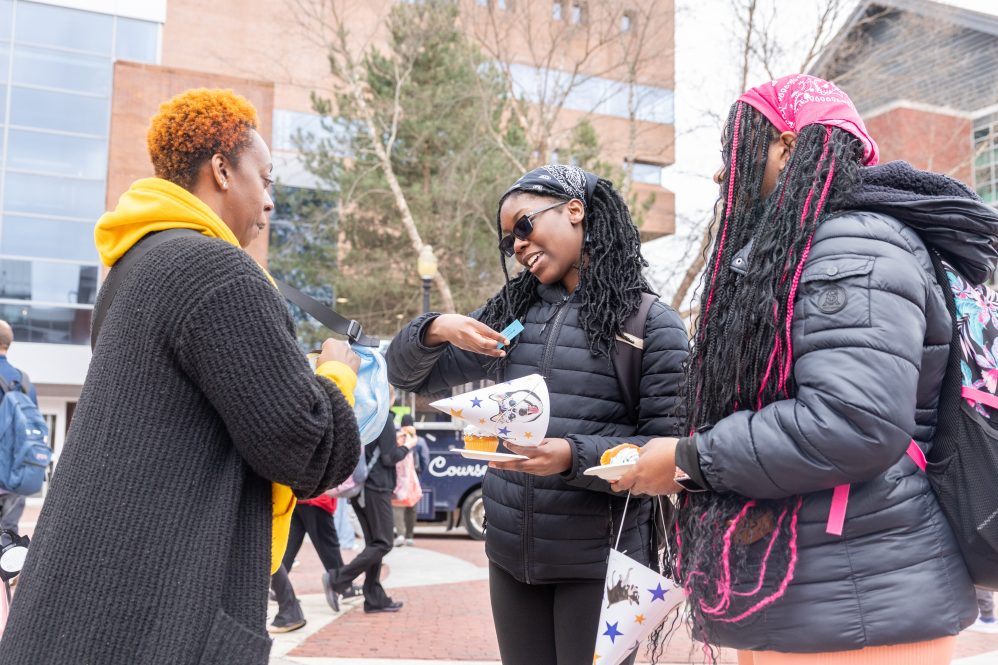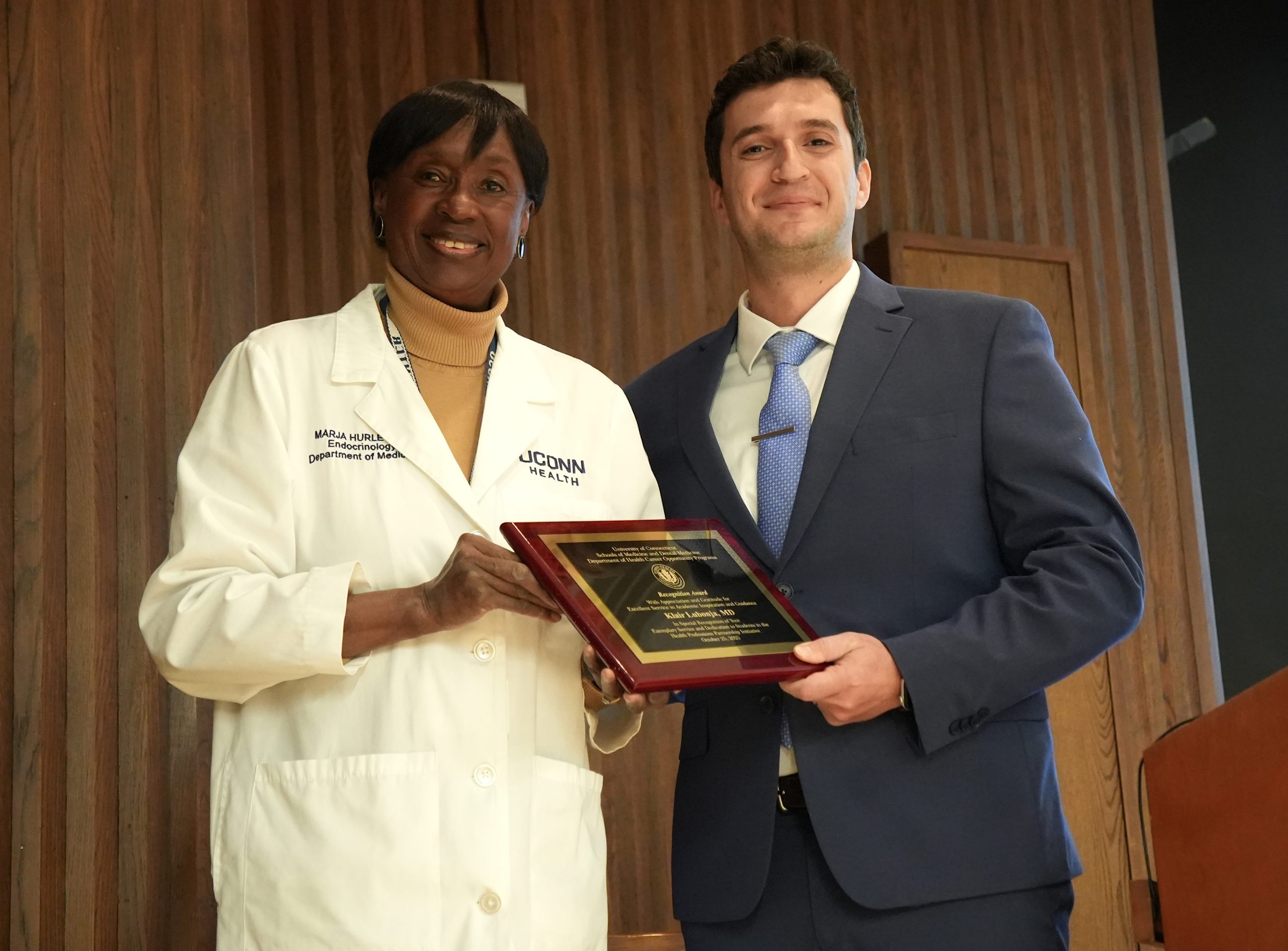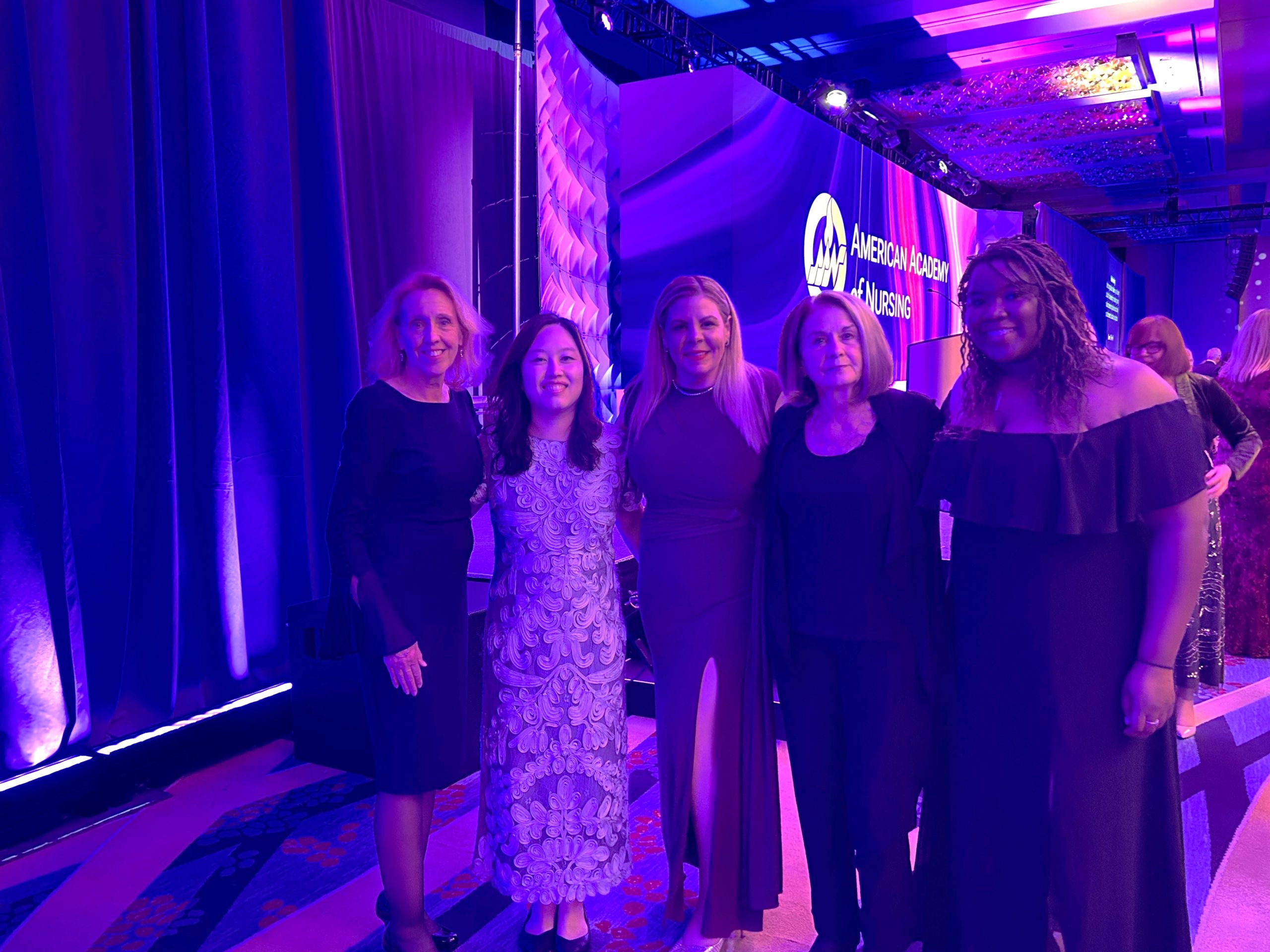It’s Wednesday afternoon, bright but with a bit of the usual bluster of spring in Storrs, and Ebonie Marie is making her way into the center of campus armed with the pale blue and white satchel recognizable by those who’ve encountered her before.

“You’re the girl with the affirmations.”
She is.
“You have them today?”
She does.

As Marie ’25 MA approaches people of color around the University, she offers them a slip of paper from the satchel, each printed with an affirmation she says all minority students need to hear, but not all do:
“Take up space! You deserve to be in every room you enter.” “Your ancestors are so proud of you.” “Everything about you is beautiful.”
“Racism has been in America for decades. It may continue to be here in America for decades. How do you heal the people being affected by it versus trying to change the people who are causing the problem because that may not ever work,” Marie asks. “The answer is community healing and giving people permission to be themselves, letting them know that I see them even if no one else does. I hear them. I care, even if they feel like they’re in a place where most people don’t.”
Marie started her Wednesday practice of passing out affirmations at the end of March after what she calls a difficult Tuesday when she was feeling hopeless and defeated. To move through those emotions, she started to write affirmations for herself, things like “You don’t need to be fixed” and “There’s nothing wrong with you.”
Before she knew it, Marie says, she had a list of about 50.
“I don’t know if it was from the spirit, from the universe, or from God, but something told me you’re not the only one who needs to read these things,” Marie says. “So, I printed them and started cutting them out one by one until I had these strips of paper with affirmations on them.”
Starting at the Student Union, she’s covered much of campus, including Wilbur Cross and the Homer Babbidge Library, in search of students who look like her, and along the way she’s been met with a mix of joy and surprise.
“They’ve been very receptive once they realize they can trust the thing that’s happening,” she says of students.
These affirmations are things she came up with – not snippets culled from the internet – which gives them more power, more heft, she says, having been written in a Black woman’s voice.
As she sees each person’s inevitable smile, she feels a little better, on her way to healing from her own hurt.
“That’s what Black artists have always had to do. The Harlem Renaissance produced some beautiful poetry and beautiful music, but all of that was happening during the Jim Crow era. We’ve always had a bit of disillusionment to have joy and that’s what I have. I’m skipping around passing out affirmations like I don’t have a care in the world, when the truth is there’s so much crumbling.”
Marie describes herself as an actor, songwriter, and poet from Los Angeles who’s slated to receive a master’s in acting, something she’s loved since she was 5 years old when she repeated things heard on TV or recited speeches at church or school.
In her grandmother’s living room, a young Marie would stage shows and “sell” tickets to family members to fill in an audience – even to uninterested cousins who just wanted to play in the family’s common space.
She saw her first Broadway show at 12 years old, “Aida,” followed by her second the following day, “Stomp,” and later on, “The Lion King.” She was hooked, and says she knew acting was her path, that she couldn’t live without the music, costumes, and pageantry of it all.
Now at UConn, after hitting barriers and incurring trauma along the way as a now-adult Black woman, Marie is staging her solo show “Do We Look Fine?” on Saturday, May 3. It’s a show borne of her go-to response when people ask how she’s doing.
“I’m fine. I’m fine. But what I really want to ask is, ‘Do I look fine?’” she says. “Asking me how I am is a bit of a microaggression to me because clearly you can see that I’m not OK.”
She continues, “I believe that people can be good people, talented people, successful people without trauma. I know no one gets through this life unscathed by trauma, but I don’t want to persevere nevertheless.”
In pursuit of self-healing, she’s after one other thing.
“I pray for the day when Black artists can just create because they feel like creating and they can create from a place of joy, not from a place of pain,” she says.
Performances of “Do We Look Fine?” will be at 3 and 6 p.m. on Saturday, May 3, at the Studio Theatre in the Drama-Music Building on the Storrs campus. Tickets are free and can be obtained online.



